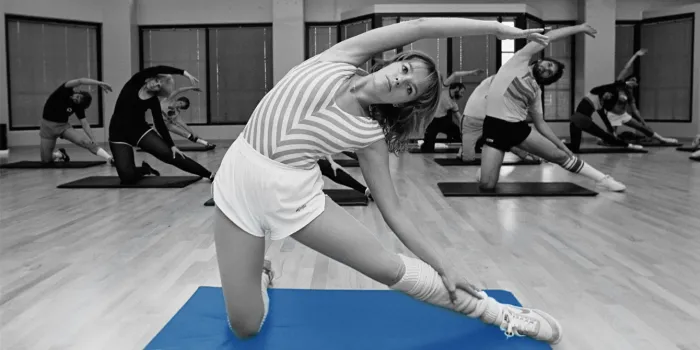As we age, our risk of falling increases — our bodies lose strength, our vision and hearing decline, and some medications can make us feel woozy. Having a bleeding disorder only exacerbates the issue.
“With hemophilia, it’s common to lose range of motion in your ankles or knees” after repetitive joint bleeds, says Jennifer Newman, a physical therapist at the UNC Hemophilia and Thrombosis Center in Chapel Hill, North Carolina. “And that makes it more difficult to clear surfaces — even small ones — like catching your toe on an area rug or uneven flooring.”
The complications associated with falls are greater for people with hemophilia, too. Not only can a fall trigger a bleed, but it’s also more likely to result in a bone fracture, given that people with bleeding disorders tend to have low bone density.
So, how can you protect yourself from a fall? Follow these five tips.
1. Have Your Eyes Checked
“If your vision is off at all, it will affect your balance,” Newman says.
Adults older than 60 should have a dilated eye exam every one to two years, but some people — such as African Americans and those with diabetes — might need one more frequently, according to the National Eye Institute. Talk to your doctor to see whether you’re at high risk.
Keratitis, or inflammation of the cornea, often caused by poor contact care, can also increase the risk of falls.
2. Invest in Good Footwear
Wearing sturdy, well-fitting shoes can keep you from slipping and falling. Look for pairs that offer support and the cushioning you need for your joints.
“We rely heavily on sensations in our feet to assist with balance,” Newman says. “Always opt for shoes with an enclosed heel and adequate tread, and take extra care when walking on slippery or icy surfaces.”
3. Move More
Studies show that as many as 20% of people with hemophilia restrict their activities out of fear of falling, but inactivity leads to lost muscle strength and flexibility that makes people unsteady on their feet.
Newman recommends checking with your doctor and the physical therapist on your hemophilia treatment center (HTC) care team before adopting any new exercise routine or activity but says walking and low-impact water aerobics are good places to start.
4. Perform Balance Exercises
There are several simple exercises you can do at home to improve your balance. Try this: Stand on one foot near a kitchen counter. Begin by holding on to the counter; then, let go. Next, add a distraction, such as brushing your teeth. Or, try closing your eyes. Balance on each foot with every exercise.
Always practice balance exercises when someone else is home. At the very least, keep your phone near you at all times in case you do fall.
5. Report Near Falls to Your Physician
Almost falling now could lead to actually falling later. If you have any near falls, tell your doctor or HTC provider. He or she may recommend physical therapy to help you prevent a future fall or help you find a therapist who specializes in working with people with hemophilia.
Your Guide to Strength Training: Building muscle and strengthening bones can help you avoid a fall, but you might need a modified exercise program. Check out HemAware’s strength training guide.

